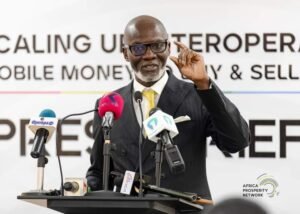
The embattled former director-general of the National Communication Authority (NCA), William Mathew Tetteh Tevie, has told an Accra high court that apart from the approval of funds from the board of the Authority for the purchase of large equipment, there was no approval for the payment of petty cash under his watch.
He told the prosecution, led by the Director of Public Prosecution, that he had no specific approval limit.
“The board had to give approval before I could approve funds, but for payment of petty cash for the purchase of fuel, among others, I give without the board’s approval,” he told the DPP.
During a cross-examination, Mr Tetteh Tevie informed the court that there were laid down procedures in the payment of monies into the eight bank accounts of the NCA.
He added that if proper procedures were not complied with, the bank would decline a request to cash-out or cash-in of any of the accounts.
Charges
The immediate past board chairman of the NCA, Eugene Baffoe-Bonnie, together with Mr Tetteh Tevie, Nana Owusu Ensaw, a former chairman of the finance sub-committee of NCA, Alhaji Salifu Mimina Osman, a former National Security Coordinator on the NCA board, and George Derek Oppong, director of Infraloks Development Limited (IDL), have been accused of conspiring to cause financial loss to the state.
The five persons are facing 16 other charges, including conspiracy, stealing, using public office for profit, money laundering, among others.
They have been charged for allegedly creating, looting and sharing $4 million under the guise of procuring a cyber-surveillance system for anti-terrorism activities in the country.
Mr Tevie told the court that the national cyber-surveillance system purchased was tested in conjunction with the supplier and that he could not have been held liable for the offence of causing financial loss to the state.
He told the court that the equipment was been used by the state in the fight against cyber-security.
He also denied the charges of willfully causing financial loss to the state, up to the tune of $4 million, adding that the Pegasus equipment was tested and installed for the national security, insisting that the purpose of purchase was met.
Other charges
In the charges of contravening the Public Procurement Act, Mr Tevie argued that it was a social corporate responsibility initiated by the National Security and that he could not have breached the Procurement Act as alleged by the prosecution.
The court was told that the funds from the NCA was paid directly to the IDL for the purchase of the equipment for the National Security.
The court also learned that the decision to purchase Pegasus was collective and not from an individual.
The presiding judge, Justice Eric Kyei Barfour, subsequently adjourned the matter to February 4 2020.
Source: Daily Statesman


